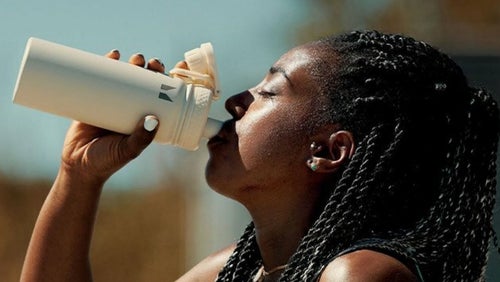- Pigman, W. (Ed.). (2012). The carbohydrates: chemistry and biochemistry. Elsevier.
- Soenen, S., Bonomi, A. G., Lemmens, S. G., Scholte, J., Thijssen, M. A., Van Berkum, F., & Westerterp-Plantenga, M. S. (2012). Relatively high-protein or ‘low-carb’energy-restricted diets for body weight loss and body weight maintenance?. Physiology & behavior, 107(3), 374-380.
- Bolla, A. M., Caretto, A., Laurenzi, A., Scavini, M., & Piemonti, L. (2019). Low-carb and ketogenic diets in type 1 and type 2 diabetes. Nutrients, 11(5), 962.
- Loucks, A. B., & Heath, E. M. (1994). Induction of low-T3 syndrome in exercising women occurs at a threshold of energy availability. American Journal of Physiology-Regulatory, Integrative and Comparative Physiology, 266(3), R817-R823.
- Lane, A. R., Duke, J. W., & Hackney, A. C. (2010). Influence of dietary carbohydrate intake on the free testosterone: cortisol ratio responses to short-term intensive exercise training. European journal of applied physiology, 108(6), 1125-1131.
- Kong, A., Neuhouser, M. L., Xiao, L., Ulrich, C. M., McTiernan, A., & Foster-Schubert, K. E. (2009). Higher habitual intake of dietary fat and carbohydrates are associated with lower leptin and higher ghrelin concentrations in overweight and obese postmenopausal women with elevated insulin levels. Nutrition research, 29(11), 768-776.
- Goforth Jr, H. W., Laurent, D., Prusaczyk, W. K., Schneider, K. E., Petersen, K. F., & Shulman, G. I. (2003). Effects of depletion exercise and light training on muscle glycogen supercompensation in men. American Journal of Physiology-Endocrinology and Metabolism, 285(6), E1304-E1311.
Hvad er carb cycling, og hvordan virker det? Fordele og tips

Hvis du er en person, der kan lide en planlagt rutine og ikke hele tiden vil skære alle kulhydrater fra din kost, kan carb cycling være det rigtige spisemønster for dig.
Carb cycling tager højde for din træning, når du beregner din måltidsplan, og tilpasser din kost til de dage, hvor dine muskler har brug for mere brændstof. Læs videre for at lære om de potentielle fordele ved carb cycling.
- Hvad er carb cycling?
- Hvordan fungerer carb cycling?
- Hvem er carb cycling egnet til?
- Carb cycling for muskler og sportspræstation
- Kan carb cycling bruges til vægttab?
- Er carb cycling det samme som keto?
- Fordele ved carb cycling
- Sådan laver du carb cycling
- Grøntsager med lavt kulhydratindhold

Hvad er carb cycling?
Carb cycling er et kostmønster, der udnytter fordelene ved low carb-diæter, men som også tager hensyn til det brændstof, du har brug for til din træning.
Det følges typisk i et par uger eller måneder ad gangen, men ikke på fuld tid som en ketogen diæt. Carb cycling betyder ganske enkelt, at man spiser en kost med et højere kulhydratindhold nogle dage og et lavere kulhydratindhold andre dage.
Afhængigt af dine mål (muskelopbygning, vægttab osv.) kan du planlægge din carb cycling-kost i flere uger ad gangen eller bare tage det dag for dag.
Hvordan fungerer carb cycling?
Carb cycling fungerer ved at anerkende, at de fleste mennesker ikke følger præcis det samme aktivitetsmønster hver eneste dag.
Selv hvis du træner 6 dage om ugen - måske 2 dage med HIIT cardio og 4 dage med vægtløftning - har du brug for færre kulhydrater ved vægttræning end ved intens cardio, og endnu færre på en hviledag.
I weekenden er du måske ude hele dagen og bevæger dig hele tiden, mens du er lænket til dit skrivebord i hverdagene, hvilket gør dit behov for kulhydrater lavere.

Hvem er carb cycling egnet til?
Carb cycling er velegnet til alle, der arbejder på at ændre deres fysik eller præstation. Hvis du prøver at opbygge muskler, vedligeholde muskler eller tabe fedt, påvirkes alt dette af mængden af kulhydrater (og protein og fedt), som du spiser.
Hvis du ikke bryder dig om at måle og spore dit indtag, er det måske bedst at tilpasse carb cycling til en mindre struktureret rutine.
Carb cycling for muskler og sportspræstationer
Carb cycling er en populær tilgang for atleter, der ønsker at forbedre deres kropssammensætning og præstationer. De fleste atleter ved, at de har brug for ekstra protein for at opbygge muskler, men resten af din kost er også vigtig.
Muskler har brug for brændstof - og det brændstof kommer i form af kulhydrater. Nøglen til carb cycling er at planlægge indtaget af kulhydrater baseret på intensiteten af din træning. De giver den energi, du har brug for til at yde dit bedste.
Når du restituerer med de rette mængder protein og kulhydrater, er dine muskler klar til næste træning. Mængden af kulhydrater og protein, du har brug for, afhænger af din træning - vægtløftning, HIIT-træning og udholdenhedstræning kræver alle, at dine muskler arbejder på forskellige måder.
Kan carb cycling bruges til vægttab?
Vi ved, at det kan føre til vægttab at skære ned på det samlede antal kalorier, men vi ser ofte kulhydrater som fjenden, der står i vejen for at nå vores mål.
Med carb cycling planlægger du fremad og træffer velovervejede valg om, hvilke kulhydrater du skal spise og hvornår, uden at føle dig begrænset ved at skære dem helt væk.
Selv om der er mange diæter, der kan føre til et vellykket vægttab, er det tiltalende ved carb cycling, at man ved, at ingen fødevaregrupper er helt udelukket.

Top 5 kosttilskud til vægttab
Disse kan være med til at kickstarte dit vægttab eller hjælpe dig med at bryde et plateau.
Er carb cycling det samme som keto?
Keto og carb cycling er det samme spisemønster. En ketogen diæt, eller keto, tvinger din krop til at forbrænde fedt for at få energi ved at begrænse dit indtag af kulhydrater kraftigt. Keto er kun en succes, hvis du holder dit kulhydratindtag meget lavt i en længere periode.
Carb cycling varierer mængden af kulhydrater i din kost uden at skære dem helt ud, hvilket kan gøre denne tilgang mere bæredygtig på lang sigt.

Hvad kan man spise på en keto diæt?
Der er meget mere, end du umiddelbart tror.
Fordele ved carb cycling
1. Vækst/fastholdelse af mager muskelmasse
Carb cycling kan bruges til både fedttab og vægtøgning. Den største forskel er antallet af kulhydratfattige dage, som enten giver en nettoværdi af kalorieunderskud eller kalorieoverskud.2
Ved at tilføje et par dage med lavt kulhydratindhold under dit program for vægtøgning giver du din krop en chance for at skære ned på noget kropsfedt (på grund af reduceret lipogenese og øget nedbrydning af fedtsyrer), som du måske har taget på.
På den anden side skaber du et anabolsk miljø ved at tilføje et par dage med højt kulhydratindhold under dit fedttabsprogram; du tager muligvis nogle muskler på og holder helt sikkert på mere masse (på grund af øget optagelse af aminosyrer, øget proteinsyntese og reduceret proteinnedbrydning).
I begge scenarier vil du i løbet af en uge på samme tid tabe fedt og opbygge/bevare muskler.
2. Endokrin stimulering
Det er veldokumenteret, at lange perioder med lavt kulhydratindtag kan sænke niveauet af skjoldbruskkirtelhormon (T3), hvilket fører til en reduktion i basalstofskiftet (antal forbrændte kalorier i hvile), som gør det vanskeligt at overvinde fedttabsplateauer.3 Planlagte dage med højt kulhydratindhold vil øge T3-produktionen, opregulere dit stofskifte og give dig mulighed for at smide endnu mere kropsfedt.4
Desuden har det vist sig, at et lavt kulhydratindtag (30 % af kalorierne kommer fra kulhydrater) kan reducere forholdet mellem frit testosteron og kortisol efter intensiv træning i løbet af blot tre dage. Ved at smide dage med højere kulhydratindhold ind hist og her kan du hæve forholdet mellem anabolsk testosteron og katabolsk kortisol og byde gevinsterne velkommen tilbage.5
Overfodring med kulhydrater kan også hæve leptinniveauet - "mæthedshormonet", som produceres i lavere grad som reaktion på krympede fedtceller (fedttab). At være mindre sulten i et par dage efter en dag med mange kulhydrater vil naturligvis hjælpe dig med at holde fast i dit cut.6
På samme måde kan det at være i godt humør efter en dag med mange kulhydrater være en hjælp til både træningsmotivation og overholdelse af diæten. Insulin kan hjælpe med det ved at gøre tryptofan, forløberen for neurotransmitteren 'godt humør' (serotonin), lettere tilgængelig for hjernen.1
3. Superkompensation af glykogen
Et par dage med lavt kulhydratindtag kombineret med hård træning kan reducere mængden af glykogen i dine muskler betydeligt. Det øger produktionen af et enzym kaldet glykogensyntase, som arbejder ekstra hårdt på at omdanne al den glukose, det kan, til glykogen (som lagres i muskler og lever).7
Når du har øget dit kulhydratindtag, vil det tage et stykke tid, før kroppen opdager, at der er nok glukose til, at enzymet kan tage den med ro. I mellemtiden vil dine muskler suge kulhydrater til sig som en svamp og lagre glykogen ud over deres normale kapacitet - hvilket betyder fyldigere, hårdere og større muskler. Det er ikke sikkert, at denne effekt er permanent, men hvis timingen er rigtig, gør det en dramatisk forskel, når du skal smide tøjet til en scene eller en fotoshoot.

Sådan kommer du i gang
For at lave carb cycling skal du først have en god idé om dit kaloriebehov og din makrofordeling (brug denne praktiske makroberegner til at komme i gang). Dernæst skal du planlægge en typisk træningsuge og beslutte, hvornår du vil træne med høj intensitet, HIIT vs. udholdenhedstræning, og hvornår du vil holde hviledage.
Baseret på din træningsplan skal du vælge, hvilke dage du vil følge en kost med flere kulhydrater (mellem 50-60 % af dine kalorier kommer fra kulhydrater), og hvilke dage du vil holde dig til low carb (mellem 30-40 % af dine kalorier kommer fra kulhydrater).
Overvej at veksle mellem disse dage, hvis det er muligt, velvidende at dine dage med lavere kulhydratindhold vil indeholde større mængder protein og sunde fedtstoffer. Hvis du varierer dine hviledage (f.eks. sidder på sofaen en dag i stedet for at gå en lang tur), kan du også indarbejde dage med moderat kulhydratindtag.
Sørg for, at du spiser nok
Hvis du ikke spiser nok, kan det virkelig bremse dine fremskridt mod dine mål. Uanset om du prøver at opbygge muskler eller tabe dig, kan et utilstrækkeligt kalorieindtag føre til muskelforbrænding og nedsætte dit stofskifte på lang sigt.
Så selv om du begrænser kulhydraterne, skal du sørge for at erstatte de manglende kalorier med proteinkilder af høj kvalitet og sunde fedtstoffer.

Kalorietabel | Hvad er der i frugt, grøntsager, kød og mælkeprodukter?
En guide til kalorieindholdet i hverdagsmad.
Få balance i dine makroer
Brug en makroberegner til at finde dine ideelle makroer, og brug derefter de forskellige aktivitetsniveauer til at få en idé om, hvordan du kan ændre dit kulhydratindtag ud fra dine planlagte træningspas.
En anden metode er at beregne dine makroer én gang og derefter finde ud af, hvor stor en procentdel af dine kalorier, der kommer fra kulhydrater - og bruge det som mål for 50-60 % på dage med mange kulhydrater og 30-40 % på dage med få kulhydrater. Hvis du stadig ikke er sikker på, hvor du skal starte, kan du få hjælp af en registreret diætist.

Makro beregner | Sådan udregner du dine makroer til flexible dieting & IIFYM
Brug din lommeregner til at beregne dine makroer.
Vælg kulhydrater af høj kvalitet
Nu hvor du ved, at du kan bruge kulhydrater til din fordel, må du ikke glemme, at du skal vælge de bedste slags kulhydrater for at få optimale resultater.
Fokuser på kulhydrater, der giver anden næring - som fibre (frugt og grønt), calcium (mejeriprodukter) og fuldkorn (vitaminer og mineraler).
Chokoladekage og fuldkornsbrød er begge primære kulhydratkilder, men den første giver dig ikke meget, mens den anden er fyldt med næringsstoffer, der er gode for dig.
Væske
Glem ikke, at du skal drikke rigeligt med vand, uanset hvor mange kulhydrater du indtager i løbet af dagen. Når du er på en dag med mange kulhydrater, og dine muskler har brug for kulhydrater som brændstof, er vand en vigtig del af den reaktion, der frigør energien fra de kulhydrater, du spiser.
Hvis du træner ekstra hårdt og sveder meget, kan du vælge at bruge en sportsdrik med elektrolytter - men glem ikke at tilføje eventuelle kulhydrater, som disse drikke måtte indeholde.
Planlæg dine måltider
Nøglen til en vellykket carb cycling er at planlægge dine måltider (inklusive makroer og kulhydrater) i forvejen.
På den måde ved du præcis, hvad du skal spise for at nå dine mål, og du kan mindske fristelsen til at afvige fra din plan. Diagrammet nedenfor er baseret på et mål på 2000 kalorier.
Denne plan er for en person, der planlægger intens træning mandag, torsdag og lørdag, med en aktiv hviledag onsdag og lav aktivitet tirsdag, fredag og søndag.

Claire er registreret diætist fra the Academy of Nutrition and Dietetics og certificeret sundheds- og velvære coach fra the International Consortium for Sundhed og Wellness Coaching. Hun har en BA i biologividenskab og en Master i klinisk ernæring fra universitetet i Pittsburgh.
At tale og skrive om mad og fitness står Claires hjerte nær, da hun elsker at anvende sin viden og erfaring til at hjælpe andre, så de kan nå deres mål omkring sundhed og velvære.
Claire er også certificeret indendørs cyklinginstruktør og elsker det mentale og fysiske boost, som hun opnår ved at løbe og dyrke regelmæssig yoga. Når hun ikke selv holder sig i form, så hepper hun på hjembyens sportshold i Pittsburgh eller kokkererer i køkkenet til hendes familie.
Få mere at vide om Claires erfaring her.









